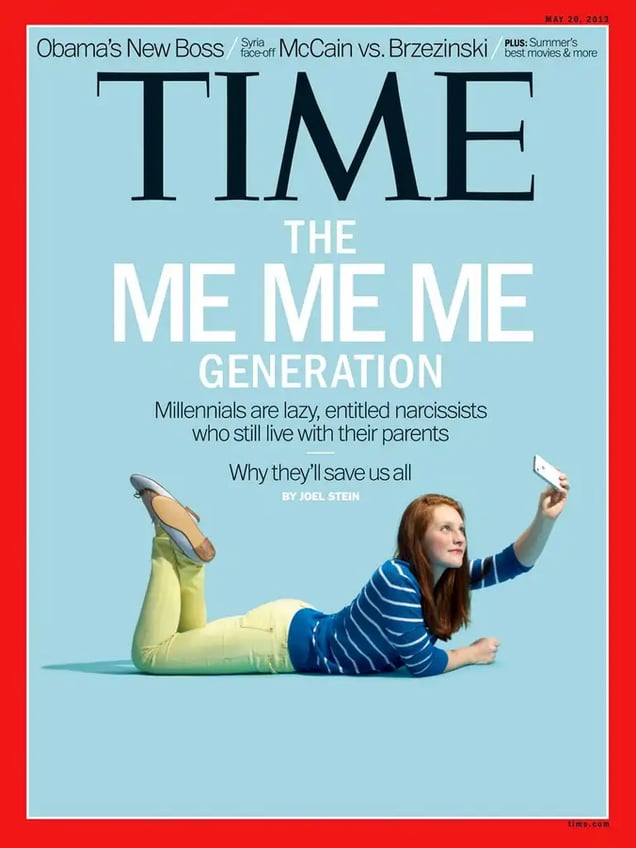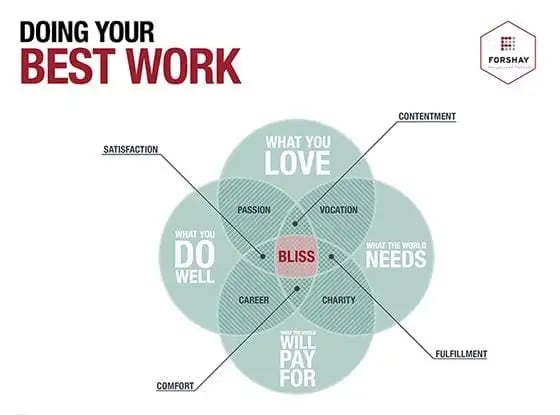Millennials are the serial daters of the workplace… when it comes to jobs, that is.

Our older counterparts stay in the same job for years, but us Uber-taking, Instagramming kid-ults tend to switch jobs once every two or three years, according to a Future Workplace study.
The workplace average is 4.6 years, according to the most recent numbers from the Bureau of Labor Statistics in 2012.
Millennials, who were born between 1977 and 1997, are sometimes labeled as spoiled and entitled. This Time Magazine 2013 cover article pretty much says it all.

But I’d argue that what older generations perceive as an unwillingness to work hard is actually something else. Namely, the deep desire to find work that gives meaning — not just a paycheck. As part of that search, a lot of Millennials will leave their jobs when they find something they believe can bring them greater fulfillment.
That means it’s likely you will be looking for a job soon.
We all grow and change, so if you realize that the job or field you’re in isn’t working for you anymore, I have some tips on how to make a less clumsy, more graceful transition. This is especially important if you’ve decided you want to try something radically different.
Know yourself
I love this Venn diagram. I think it speaks volumes.

If you aren’t, you’ll find yourself in yet another job that isn’t right for you.
- What do you want? What are your strengths?
- What are your personal values and do they reflect the values of the job you want?
- What matters to you most? What is most rewarding?
- How important is earning a high salary?
The next steps to switching successfully

Cyberstalk
Read up on the industry, job, and company that interest you. Then think about the hiring manager’s perspective. What do they need? What would make their life easier? Ask yourself whether you’re the right person to fill that need, and make a list of why that might be true.

Get an intro
Knowing someone — anyone — who can help you get some facetime or an interview is a huge asset. Sometimes it simply helps set yourself apart from the hundreds of other applicants in a mountainous pile of resumes because, unlike them, you have someone to vouch for you. Other times, that person can tell you what it’s really like to do the kind of work you’re thinking about.
Some jobs I’ve had, like being a tour guide, looked glamorous from the outside, but are not that way when you’re doing them. It’s good to know that kind of thing before you dive in.

Figure out your transferrable skills
Your current job may be wildly different from your next job, but there are still skills that will come in handy. For example, if you’ve worked in retail you can emphasize that you have sales experience.
If you led a student group while you were in school, you’ve had management experience.
If you got a master’s degree in creative writing, worked as a teaching assistant, and now want to get into marketing, you probably have experience introducing people to new concepts and ideas, creating introductory presentations, mentoring, and public speaking.
It’s all about semantics and the way you describe the stuff you’ve already done.

Find the narrative thread
Your life is already a story and you’re the main character. But when you look back at all the ways you’ve chosen to spend your time, you’ll probably see some themes emerge. And I’d bet anything that those themes will transcend the circumstances of what you were doing at the time. Those are the skills you should focus on when moving towards a new job.
For example, maybe you see a theme of connecting people and building relationships that would make you a great candidate for a client-facing position. Or maybe you see that you’re the person who swoops in and cleans up problems when things are at their worst. Or maybe you’re always the person keeping track of details and making sure that things run smoothly. Pay attention to that stuff.

Your resume should speak to the job you want
When you spruce up your resume, translate the experience you already have into the language of the new job. That might mean reframing what you did and focusing on peripheral tasks.
For example, say you were an engineer at your last job and that took up most of your time. But you also managed another person, although it was a small part of your role. If you want a job that is more people-focused, emphasize your role as a manager.
It’s never too late to change
Seriously. Life is too short to force yourself to do something you hate. So if you’ve hit a wall… turn left or right. There are so many examples of people who decided to make a change and follow their passion towards success and fulfillment.
Did you know, for example, that Walt Disney got his start as an ambulance driver?